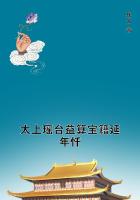The learned women who direct Wellesley's work in Philosophy and Psychology lend their own distinction to this department. Professor Case, a graduate of the University of Michigan, has been connected with the college since 1884, and her courses in Greek Philosophy and the Philosophy of Religion make an appeal to thoughtful students which does not lessen as the years pass. Professor Gamble, Wellesley's own daughter, is the foremost authority on smell, among psychologists. In her chosen field of experimental psychology she has achieved results attained by no one else, and her work has a Continental reputation. Professor Calkins, the head of the Department, is one of the distinguished alumnae of Smith College.
She has also passed Harvard's examination for the Doctor's degree; but Harvard does not yet confer its degree upon women. She was the first woman to receive the degree of Litt.D. from Columbia University, and the first woman to be elected to the presidency of the American Psychological Association, succeeding William James in that office.
In the Department of Economics and Sociology, organized under the leadership of Professor Katharine Coman, in 1901, Wellesley has been fortunate in having as teachers two women of national reputation whose interest in the human side of economic problems has vitalized for their eager classes a subject which unless sympathetically handled, lends itself all too easily to mechanical interpretations of theory. Professor Coman's wide and intimate knowledge of American economic conditions, as evidenced in her books, the "Industrial History of the United States", and "Economic Beginnings of the Far West", in her studies in Social Insurance published in The Survey, and in her practical work for the College Settlements Association and the Consumers' League, and as an active member of the Strike Committee during the strike of the Chicago Garment Workers in 1910-1911, lent to her teaching an appeal which more cloistered theorists can never achieve. The letters which came to her from alumnae, after her resignation from the department in 1913, were of the sort that every teacher cherishes. Since her death in January, 1915, some of these letters have been printed in a memorial number of the Wellesley College News. Nothing could better illustrate her influence as an intellectual force in the college to which she came as an instructor in 1880.
One of her oldest students writes:
"I am too late for the thirtieth anniversary, but still it is never too late to say how much I enjoyed my work with you in college. It always seemed such grown-up work. Partly, l suppose, because it was closely related to the things of life, and partly because you demanded a more grown-up and thoughtful point of view.
It was a great privilege to have your Economics as a sophomore.
I have always meant to tell you, too, of what great practical value your seminar in Statistics was to me; it gave me enough insight into the principles and practice to encourage me to present my work the first year out of college in statistical form. It was approved. Without the incentive and the little experience I had gained from you I might not have tried to do this. Since then, in whatever field of social work I have been I have found this ability valuable, and I developed enough skill at it to handle the investigation into wages of the Massachusetts Minimum Wage Commission without other training. I am very grateful to you for this bit of technical training for which I would never have taken the time later."
Another says: "It is a pleasure to have an opportunity, after so many years, to make some expression of the gratitude I owe you.
The course in Political Economy which I was so wise as to take with you has proved of vital importance to me. That was in 1887-1888, but as I look back l see that in your teaching then, you presented to us the ideas, the concepts, which are now accepted principles of men's thought as to the relation of class to class, of man to man. And so I feel that it was to your enthusiasm, your power of inspiring your pupils that I owe my own interest in economic and sociological affairs."
And still another: "I have had more real pleasure from my Economics courses and Sociology courses than from any others of my college course. Had it not been for yourself and Miss Balch, that work would not have stood for so much. For your guidance and your inspiration l am most grateful. l have tried to carry out your ideals as far as possible in the Visiting Nurse work and the Social Settlement in Omaha ever since leaving Wellesley."
Professor Emily Greene Balch, who succeeded Miss Coman as head of the Department of Economics, is herself an authority on questions of immigration; her book, "Our Slavic Fellow Citizens", is an important contribution to the history of the subject, and has been cited in the German Reichstag as authoritative on Slavic immigration.
She has also served on more than one State commission in Massachusetts,--among them the disinterested and competent City Planning Board,--and the sanity and judicial balance of her opinions are recognized and valued by conservatives and radicals alike.
Besides the traditional courses in Economic History and Theory, Wellesley offers under Miss Balch a course in Socialism, a critical study of its main theories and political movements, open to juniors and seniors who have already completed two other courses in Economics; a course entitled "The Modern Labor Movement", in which special attention is given to labor legislation, factory inspection, and the organization of labor, with a study of methods of meeting the difficulties of the modern industrial situation; and a course in Immigration and the problems to which it gives rise in the United States.















